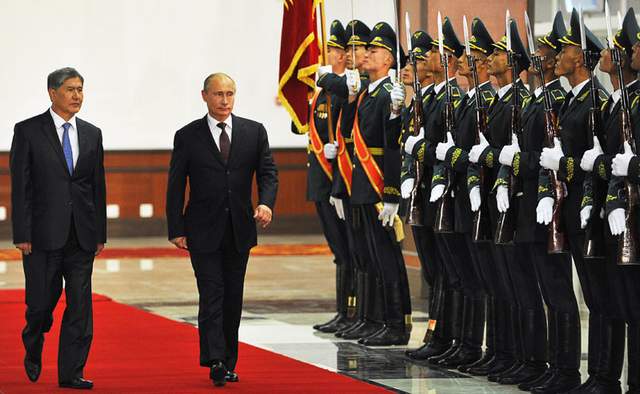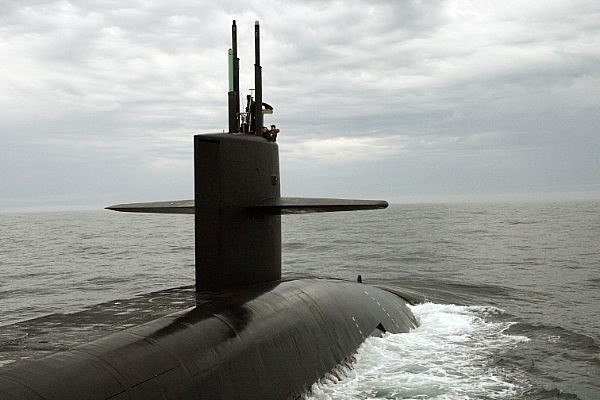Friend or foe? Russian intervention in Ukraine has set off an anguished debate within NATO over how to deal with a newly assertive Moscow ready to defy the West.
For some, President Vladimir Putin’s annexation of Crimea in March shows Russia has ditched the post-Cold War rulebook, redrawing borders by intimidation and force.
For others, the Ukraine crisis is a one-off in which Russia’s legitimate interests must be dealt with to avoid a lasting confrontation which will poison relations and require massive additional defence spending for years.
NATO leaders will meet at a September summit in Britain now dominated by events in Ukraine, with the US-led military alliance reviewing options to reassure its nervous east European members that they will not be abandoned if Russia goes for broke.
The alliance’s head Anders Fogh Rasmussen says Russia’s “illegal aggression” against Ukraine has upended the security environment in Europe, making it more unpredictable and dangerous.
Russia has increased defence spending by 50 percent over the last five years, while the allies have cut theirs by a fifth, Rasmussen said, warning NATO members they will have to pay for measures that must be continued “as long as necessary.”
NATO defence ministers agreed Tuesday a program intended to bolster security in eastern European member states and increase the alliance’s reaction speed.
Some NATO members were more than surprised at Russia’s ability to mass 40,000 troops on the border with Ukraine very quickly and keep them there, ready for action, for some time.
The lesson is clear — act now or pay a much heavier price later when Russia tests NATO again.
Avoid confrontation with Moscow
On the other side, allies such as France and Germany believe the aim should be to get Russia to back off out of self-interest and so “not get caught up in a logic of confrontation,” said one senior diplomat.
“We have to avoid taking measures which smack of the Cold War, such as deploying tanks near to Russia’s borders,” said the diplomat, who asked not to be named.
Some member states such as Poland have been pushing for NATO to establish permanent bases in the east to deter Russia, an option which the alliance’s military commander US General Philip Breedlove has notably declined to rule out.
But putting increased forces into eastern Europe is a hugely sensitive issue.
Some allies are “asking Rasmussen not to go too far, too fast and to suggest adjustments, not a complete rewriting” of relations with Russia, another diplomat said.
At issue is the 1997 NATO-Russia Founding Act, which formalized post-Cold War borders in Europe and crucially said the West, led by the United States, would not permanently deploy troops or arms, including nuclear weapons, in the newly-freed east European countries.
Both sides also agreed that neither should treat the other as an “adversary”.
However, Russia’s ambassador to NATO, Alexander Grushko, said Monday that NATO deployments of additional alliance planes and troops in states such as Poland and the Baltic countries, defended as a gesture of reassurance, amounted instead to a breach of the treaty.
Rasmussen insisted that NATO’s response was entirely within the limits of the Founding Act while Russia was in “blatant breach” of the treaty for its actions in Ukraine.
Against this backdrop, German Defence Minister Ursula von der Leyen was careful with her words on Tuesday.
The east European allies can be sure they have “our full solidarity,” von der Leyen said, but “it is important that we reassure (them) in a way that we are present in a multi-national, but rotating and flexible manner.”
On Tuesday, President Barack Obama announced a $1 billion US ‘reassurance plan’ for eastern Europe but also left the door open to Russia to return to a more cooperative stance with the West if it chose.
A key test of everyone’s intentions comes later this week when Putin meets most of the G7 leaders at the D-Day commemorations in Normandy, France.
Editor Note: Lets not forget that Russian intervention in Ukraine was in response to NATO/Western intervention in Ukraine. We really did not have any business messing around in Russia’s backyard.











